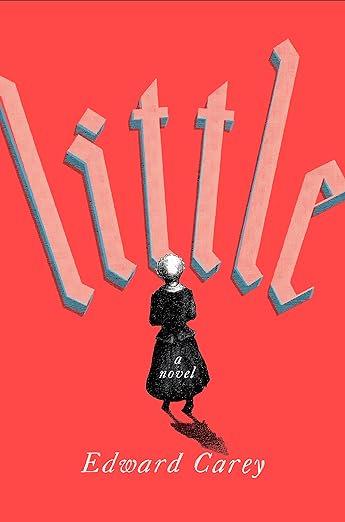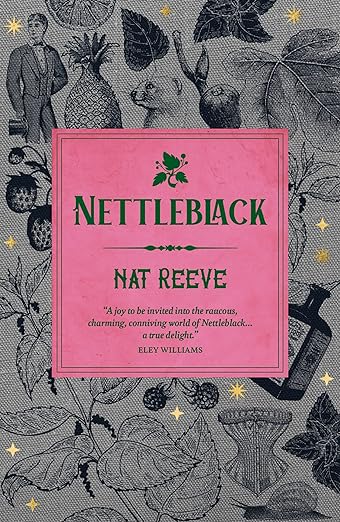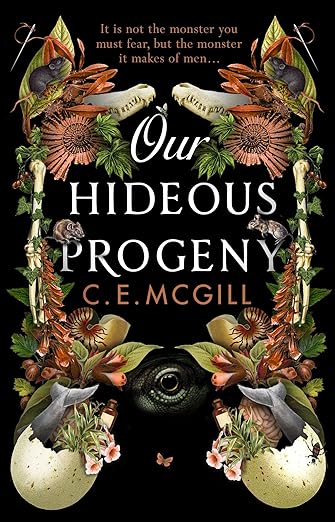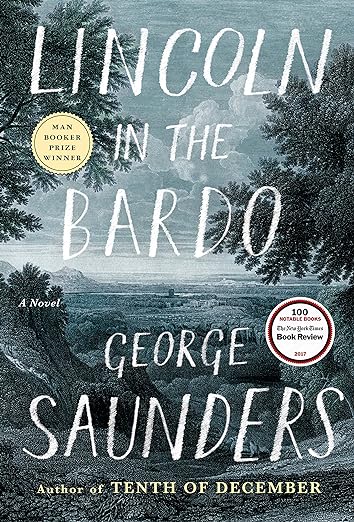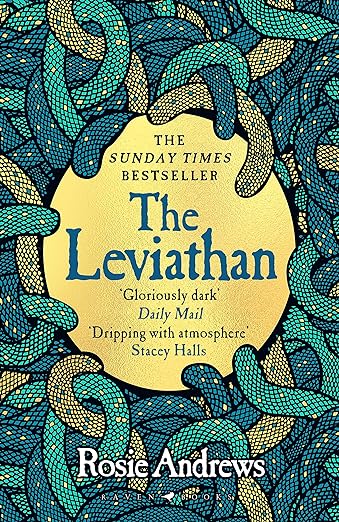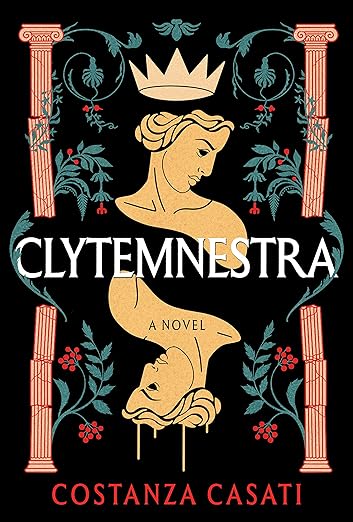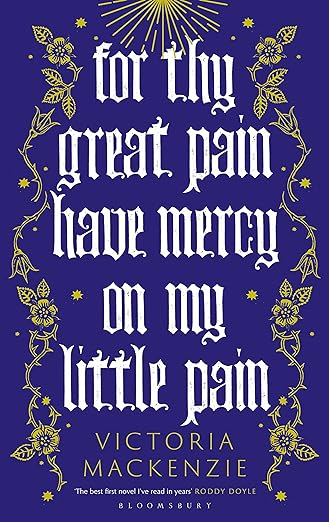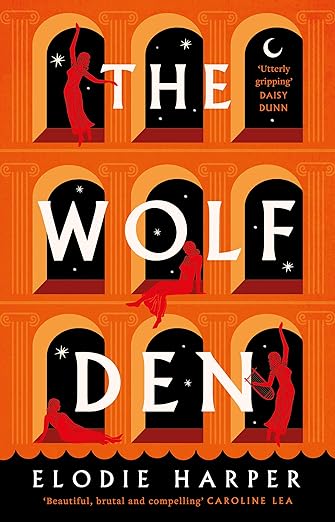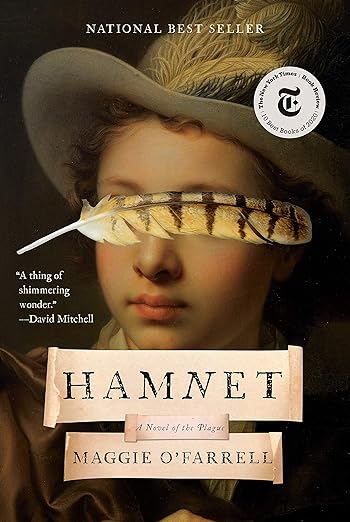I read "Little" by Edward Carey, and it's a stunning piece of semi-gothic historical fiction. This novel offers a fictionalized account of the life of Madame Tussaud, known for the waxworks museums bearing her name. The story is beautifully dramatic and Gothic at times, with a touch of bleakness and twisted elements. What makes it even more unique is that Edward Carey, the author, is also a talented illustrator, so the book is enriched with frequent anatomical sketches, some of which are cute and cool, while others are wonderfully morbid. The protagonist, Marie, born in 1761, was taken in by a reclusive anatomist who taught her everything about anatomy as they traveled through Europe. She lived through the French Revolution, worked in Versailles, experienced love, tragedy, and trauma. "Little" is a truly incredible novel and one of the few books that has made me cry. It's an immaculate and profoundly moving read.
I read "Finger Bone" by Japanese author Hiroki Takahashi, which was translated into English by Takami Nieda. It's a short but harrowing piece of World War II fiction, offering a unique Japanese perspective on the war. The story is set in Papua New Guinea, with a nameless narrator. Half the time, we're in a field hospital as the narrator recovers from bullet wounds, and the other half, we're deep in the jungle. The central theme of this book is camaraderie, as the protagonist befriends people who often succumb to their wounds or malaria. The book reminds me of the poetry of Wilfred Owen, known for his World War I writings about the harsh realities of war. "Finger Bone" is an anti-war novel that doesn't delve into politics but rather presents a man's life and circumstances, prompting readers to contemplate the true cost of war.
I read "Nettleback" by Nat Reeve, an expert in Victorian history, culture, and literature. This book is a dazzlingly hilarious and charming piece of historical fiction. It's reminiscent of Terry Pratchett's works in both tone and events and shares similarities with the film "Hot Fuzz" by Edgar Wright. Set in the late 19th century, the story follows a young woman from a prominent family in Surrey who escapes an arranged marriage and inadvertently becomes part of a local vigilante group. They tackle crimes, both big and small, in their town, and a surprising mystery unfolds when a real human skull is found in a prop box at the local theater. "Nettleback" also delves into the exploration of gender, with the protagonist meeting a non-binary individual and questioning their own gender expression. Written by a non-binary author, the book is incredibly witty, funny, and charming, offering a unique take on historical fiction.
I recently read "Our Hideous Progeny" by C.E. McGill, which is a remarkable debut novel that serves as a spiritual sequel to "Frankenstein." Set in 1850s Britain, the story is an exciting piece of Gothic historical fiction, and it cleverly incorporates elements of science exploration and discovery from that era, including dinosaurs. The protagonist, Mary, discovers she is the great-niece of Victor Frankenstein, and the narrative follows her and her husband, Henry, as they delve into the world of science. The book beautifully weaves in elements of Mary's great uncle's legacy, creating a captivating and surprising story that blends science and Gothic elements in a unique way. "Our Hideous Progeny" is an outstanding dedication to "Frankenstein" and is sure to please fans of the original novel.
"Lincoln in the Bardo" by George Saunders is a captivating and beautifully strange novel that I've read multiple times. It revolves around the tragic death of William, Abraham Lincoln's son, at a young age. The story is set in a purgatory-like space known as the Bardo, drawing from Buddhism, which serves as a transitional realm between life and death. In the Bardo, William interacts with other ghostly figures who share their stories and experiences. The novel also takes us back to the real world, where Abraham Lincoln grapples with grief, visits his son's tomb, and tries to come to terms with the loss. What makes this book even more unique is its experimental and literary style. "Lincoln in the Bardo" is surreal and beautifully meditative, offering a fresh perspective on the theme of grief.
"The Leviathan" by Rosie Andrews is a delightful and absurdly campy piece of British gothic fiction. It sets a tone that is remarkably playful without becoming obtuse or awkward. The story takes place during the English Civil War and centers around a young man who returns to his rural farm, only to find his younger sister convinced that their new servant is exploiting their father, likely for financial gain.
Costanza Cassati's debut novel, Clytemnestra, offers an immaculate perspective on the Greek mythological figure . She's portrayed as the sister of Helen and the ill-fated wife of the cruel and brutal Agamemnon. This captivating narrative delves into her entire life story, from her youthful days alongside Helen to her short-lived marriage to a decent man, tragically murdered by Agamemnon.
Victoria McKenzie's debut novel, "For Thy Great Pain, Have Mercy on My Little Pain," offers a profound and concise exploration of the lives of two significant Medieval women in early 15th century Norfolk, England. Both of these women have experienced visions of Christ. One of them, who takes the name Julian, embarks on a remarkable journey to become an anchorus. This holy role entails secluding oneself within a cell attached to a local church, never to leave it. Julian spends 23 years in her cell, coping with the loss of her family and child, enduring hardships and diseases, all while experiencing divine visions. Her role as an anchorus includes offering spiritual guidance to those who seek her wisdom through a window in her cell. It's a testament to her unwavering faith and the unique path she chooses to follow.
The Wolf Den" takes us to the heart of ancient Pompeii, a setting typically associated with its catastrophic volcanic fate. However, this novel focuses on the life of Amara, a woman who finds herself working in a brothel. It delves into her journey, exploring how she not only survives but also thrives, using her intelligence and resourcefulness to rise above her circumstances. The book also emphasizes the importance of friendship, highlighting the bonds formed between the sex workers in the brothel, the men Amara encounters, and the women she befriends and relies on. "The Wolf Den" is a stunning piece of historical fiction that addresses the lives of sex workers, a subject rarely explored in historical contexts, making it a valuable and commendable narrative.
Maggie O'Farrell's "Hamnet" is undoubtedly one of the finest pieces of British historical fiction. This award-winning novel, set against the backdrop of William Shakespeare's life, brilliantly portrays the individuals who orbit around the iconic Bard himself. The story primarily centers on Agnes Hathaway, Shakespeare's wife, who is depicted as a resourceful and complex character. Alongside her, the narrative explores the tragic fate of their son, Hamnet, whose untimely death becomes the inspiration for Shakespeare's masterpiece, "Hamlet." The book beautifully weaves together the tales of Agnes's life and her marriage to the Bard, while also delving into the profound impact of Hamnet's passing on their family. "Hamnet" is a literary masterpiece and a personal favorite, deserving of its accolades and recognition as an exquisite work of historical fiction.
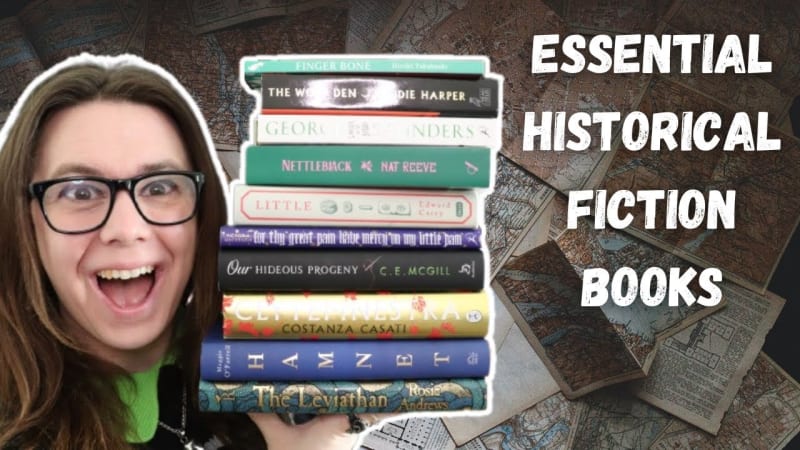
 Little
Little Finger Bone
Finger Bone Nettleback
Nettleback Our hideous Progeny
Our hideous Progeny Lincoln In The Bardo
Lincoln In The Bardo The Leviathan
The Leviathan Clytemnestra
Clytemnestra For Thy Great Pain Have Mercy On My Little Pain
For Thy Great Pain Have Mercy On My Little Pain The Wolf Den
The Wolf Den Hamnet
Hamnet